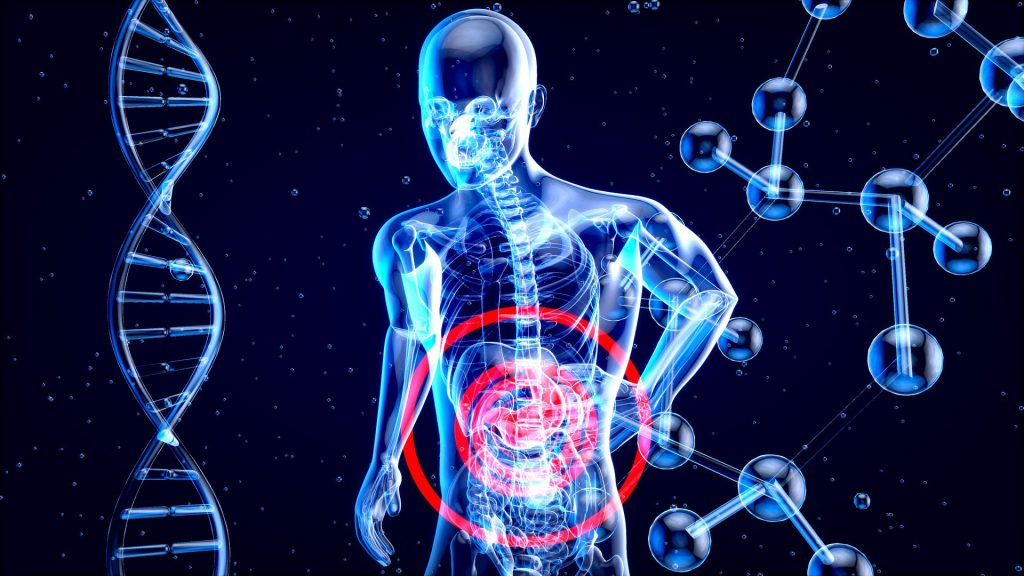6 tips to improve your digestive health
The digestive system is extremely important for our overall well-being. Namely, seventy percent of immune cells are located in the gut. The lining of the digestive system where all these immune cells are located helps keep toxins from entering our bloodstream.
Therefore, it’s of huge importance to take care of our digestive health the right way. If you neglect it, your body isn’t not going to be capable of absorbing the necessary nutrients. So what are we supposed to do?
The truth is, there are a number of steps that you can take to improve it. If you’re currently having some problems with it, maybe it would be smart to take a look at our tips below to see what needs to be done.

Effective ways to enhance your digestive health
Consider taking probiotics
What do probiotics represent? They can be defined as live microorganisms that can be consumed through either supplements or fermented foods. A plethora of studies has shown that the imbalance or balance of bacteria in the digestive system is linked to various health issues.
Furthermore, with their help, you will achieve the balance of gut bacteria and reap many other benefits from them. Moreover, probiotics can help with digestion and IBS symptoms (which is a common, long-term condition that strikes the digestive system). Besides the aforementioned benefits, below we will enumerate some more:
- Probiotics can “bring” more friendly bacteria into your digestive tract
- They can also help those dealing with both chronic and acute diarrhea and in some instances, even prevent it
- Probiotic supplements enhance certain mental health problems
- They are able to lower the severity of specific allergies and eczema
Turn to high-fibre diet
According to a lot of gut experts, eating a high-fibre diet that’s loaded with veggies, fruits, whole grains, and legumes can significantly enhance your digestive health. Namely, a high-fibre diet can aid in keeping food moving through your digestive system, meaning that it’s highly unlikely that you’ll get constipated.
Besides positively affecting anyone with irritable bowel syndrome (IBS), a high-fibre diet can also help you tackle other digestive disorders, such as haemorrhoids and diverticulosis.
Adding more useful information below
Avoid red and processed meats as much as possible
If you want to work on improving your gut health, it would be advisable to completely avoid red and processed meats or to at least limit them. Why is this so important? Well, that’s because these foods have a large amount of sodium, nitrates, and fat which are actually linked to colon cancer.
Many studies reported that red meat is one of the main causes of heart-related issues, digestive problems, and cancer. Therefore, instead of eating these, you should opt for fish, chicken, and legumes.
Embrace the real food
The typical Western diet (which is packed with saturated fat, refined carbs, additives, etc.) can potentially increase your chances of having numerous digestive health problems. Food additives, such as salt, glucose, and many others, can increase gut inflammation and cause a condition known as leaky gut.
That’s precisely one reason to focus on eating whole foods and eliminating those that contain trans fats and many other harmful things. Incorporating fermented foods, which are rich in probiotics, can also support gut health by promoting a healthy balance of beneficial bacteria.
Staying hydrated is a must!
This is particularly important for those who are dealing with constipation. Namely, one of the biggest causes of this condition is precisely low fluid intake. Consequently, if you want to change things for the better, you should drink 1.5 to 2 litres of water every single day.
Bear in mind that if you live in a region with very high temperatures, then you should add another litre to this amount. The same goes for anyone who exercises frequently. Besides enhancing your digestive health, water also regulated body temperature, lubricates the joints, and eliminates toxins from the body.
Exercise as often as you can
It is widely known that exercising is beneficial in so many ways, meaning that it can positively affect the GI tract too! Perceive physical activity as some sort of medicine for your microbiome. Namely, many researchers have uncovered in the past that working out promotes an increase in the diversity of healthy bacteria in our digestive system.
This refers to both humans and animals. What’s interesting is that a recent study has shown that any form of physical activity can alter gut bacteria functionality and composition regardless of what you’re eating.

Poor digestive health can negatively impact other organs in our body. Hence you must do everything that’s in your power to take care of it. One of the things that you can do, for the time being, is to go through these tips and be sure to implement all of them.
![[AD] ✨ Festive magic for local families in the heart of Guildford ✨
We had the loveliest evening exploring the @guildfordilluminate light trail at Guildford Castle
The trail takes around 30–40 mins
with cosy stops for hot chocolate and toasting marshmallows, it’s a gorgeous Christmas activity for Surrey families.
It’s on until 4th January and makes the perfect festive plan:
🛍️ Christmas shopping in town
✨ The light trail
🍽️ Finish with dinner in Guildford
If you’re looking for a magical, stress-free festive outing with the kids — this is one to add to your Christmas list
📍 Guildford Castle, Castle St, Guildford GU1 3SX
#GuildfordWithKids #SurreyFamilies #ChristmasInSurrey](https://suburban-mum.com/wp-content/uploads/2018/09/589257185_18566118850016840_4432952740767953046_n-180x320.jpg)
![[AD] We went to the newly opened Cha Sha Kingston a couple of weeks ago, and wow — taste bud adventure unlocked! The boys devoured the masala fries and chicken tikka rolls, while we couldn’t get enough of that epic kebab butter curry 😍🍛.
It’s amazing value for food this tasty (and everyone left happy and VERY full!).
Delicious food, vibrant vibes and incredible value — the perfect combo for your next meal.
📍Cha Sha Kingston
43 Surbiton Road, KT1 2HG
🌐 chasha.co.uk
Other Cha Sha locations in Birmingham, Ilford, Southampton and Wembkey
#ChaSha #ChaShaKingston #KingstonEats #FoodieFinds #UKFoodie #FoodReview #KingstonUponThames #FamilyEats #FamilyDining #FoodieKids](https://suburban-mum.com/wp-content/uploads/2016/02/574770541_18560351146016840_6855048070839528040_n-180x320.jpg)

![[AD] We’re a cricket-mad family, so we’re buzzing that @thehundred is back this August! 🏏🔥
To get ready, M tried out the official FREE Activity Pack — and it’s brilliant! 🙌
Packed with fun games, creative challenges and sporty tasks, it’s perfect for getting kids hyped whether you’re at home or on the go.
👉Download yours now (link in bio)
@londonspirit @ovalinvincibles #EveryMomentCounts #TheHundred
#EnglandCricket #CricketFamily #TheHundredCricket #LondonBloggers #Cricket #CricketIsLife #kidsfun](https://suburban-mum.com/wp-content/uploads/2022/11/505472555_18531279601016840_7092520074819907569_n-180x320.jpg)



![[AD - Press visit]
We enjoyed the glorious sunshine this weekend with a trip to Brighton. We went on the @brightoni360official which is right by the sea front.
The i360 pod take a slow journey up, allowing you to take in views across Brighton and the South Downs 450ft above ground. There’s a bar inside with drinks and snacks available to purchase and the experience lasts 25 minutes.
Afterwards, we headed to the open air roller rink for a roller skating session!
The roller rink is:
⭐ Suitable for over 5s
⭐ £6.50 if you have your own skates or £9.50 if you need to hire them
⭐ 45 minutes per session
Full details to visit the i360 + skating
📍 Brighton i360, Lower Kings Road, Brighton BN1 2LN
🚗 Parking nearby (we parked in the Regency Square Car park)
🎟️ Prices start from £25.40 for an adult and £16.90 for a child
🕐 Opening hours are currently Sun-Fri 10.30am-18.30pm and until 19.30pm on Saturdays
☕️ Bar inside the i360, cafe and gift shop
Book tickets here:
https://tickets.brightoni360.co.uk/tickets/?_ga=2.195305772.1869001490.1689671753-1757164059.1689671753/#events?eventid=157](https://suburban-mum.com/wp-content/uploads/2015/04/417980235_313576471048632_3682382982231216432_n.jpg)

![[AD] ***Summer of fun at Barracudas Activity Camps!****
There is plenty for kids to do at @barracudas_activity_day_camps
From Tennis, Archery, Swimming, Motor Sports and more you can be sure that there will be something for kids aged 4.5-14. ⚽🏈🥅🎾🏓🏎️🏹🏊♂️🏉
You can book on a day by day basis - so it can fit in with any other days out/activities you have planned and there are early drop off and late pickup options available. Barracudas are also Ofsted registered so you can use your Childcare Vouchers too.
⭐⭐⭐Get £20 off a week or £4 off a day using my discount code: MARIA20⭐⭐⭐
#BarracudasActivityDayCamp #BarracudasActivityCamp #BarracudaAmbassadors #SummerHolidays #SchoolHolidays #Summer2023 #SummerCamp #DayCare #Camp #KidsCamp #surreymummy #surreymums #SummerOfFun #ActivityCamps #HolidayCamps #Childcare #SchoolHolidays #schoolholidaycamps](https://suburban-mum.com/wp-content/uploads/2024/07/353583570_625625966167953_545896259645102575_n.jpg)



![[AD] We have some super exciting news...we have been chosen to be Laser Quest Ambassadors, and the boys are over the moon!
We are really lucky that our local Laser Quest (@laserquestkingston) is just around the corner from us. It means we can pop in of a weekend or anytime during the school holidays, and with summer just around the corner, I know Laser Quest will be one of our go-to places for some family fun.
As well as games of Laser Quest, there are also VR experiences and arcade amusements too. To find out a bit more about how Laser Quest works, you can read my blog post: https://www.suburban-mum.com/laser-quest-kingston/ (clickable link in bio)
Don't forget to keep an eye out for our Laser Quest posts - I'm going to be giving away two family passes to use at Laserquest Kingston!
If you can't wait and want to head down to Laser Quest to try it out, use the code SUMMER30 for 30% off your booking. The code is valid from now until the end of August 2023 and can be used on Laser Quest games and birthday party bookings.
#LaserquestAmbassador #Laserquest #LaserquestKingston #ActivitiesForKids #FamilyFun #DaysOutWithKids #Lasertag #LaserquestVR #Kingston #ThingsToDoInKingston #SurreyFamilyDaysOut #ThingsToDoWithKids #RainyDayFun #SurreyMummy #SurreyLife #LifeWithKids #LifeWithBoys #familyfunday](https://suburban-mum.com/wp-content/uploads/2015/04/353230107_797358078406942_2405522556733455165_n.jpg)

![[AD] The sun has finally made an appearance and the boys have been making the most of it by spending it
in the garden.
They’re go-to is always football and they’ve been trying to improve their aim and accuracy with the new Messi Foldable Footlball goal from the #MessiTrainingSystem range.
I love the fact the goal is foldable, making it easy to store away when not in use. It is also lightweight so you can effortlessly pack it up and take it to the park or to a friend’s house.
The Messi Foldable Football Goal retails at £36 and can be purchased from @argos
You can read my full review here: https://www.suburban-mum.com/messi-foldable-football-goal/
#TrainLikeMessi #FoldableFootballGoal #FootballSkills #OutdoorFun #LionelMessi #LeoMessi #FootballAtHome #OutdoorKids #JustGetOutside #OutdoorsAndFree #ScreenFreeKids #WhateverTheWeatherKids @flair_gp](https://suburban-mum.com/wp-content/uploads/2015/04/341194882_615024710178056_41977149395989448_n.jpg)

![[AD] We are absolutely thrilled to announce that we are Barracuda Ambassadors again this year.
With Easter just around the corner, the boys were sent the @barracudas_activity_day_camps new camp kit in preparation for the school holidays.
There’s a wide range of activities for kids aged 4.5 - 14 including Tennis, Archery, Basketball, Arts & Crafts and more.
If you like the sound of Barracudas, find out more over on their website. You can also save £20 a week or £4 a day, using my discount code: MARIA20](https://suburban-mum.com/wp-content/uploads/2024/07/336812306_765234558514317_685553691647241974_n.jpg)





